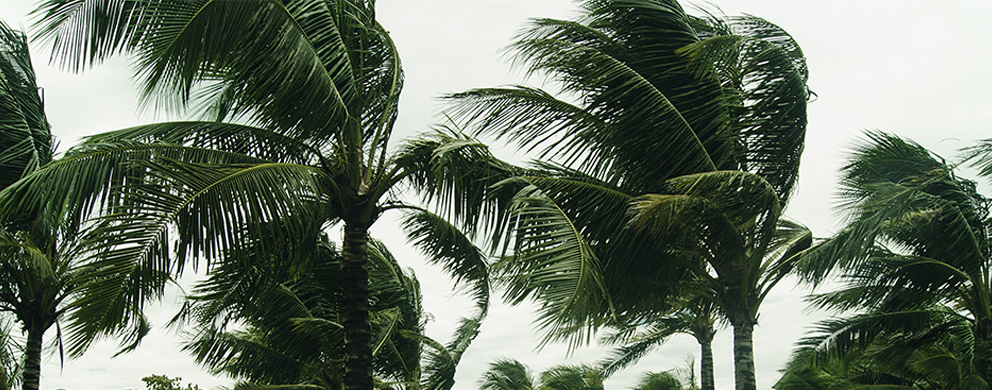Orlando Credit Union Status
Updated: 10/11/2024, 9:15am ET
We are actively monitoring weather conditions. At this time all operations will continue as normal and all branches are open regular hours.
Can't Visit a Branch? You Can Still Access Your Account!
- Access your account quickly and safely from anywhere with Orlando Credit Union online and mobile banking.
- No internet? No problem! Access your account by phone. Dial 407.835.3500 or toll-free at 800.953.4567, then select option 2 after selecting your preferred language.
- Use your Orlando Credit Union debit card at over 80,000 surcharge free locations nationwide and any Publix ATM fee-free.
- Away from home? You can still get your banking done at one of more than 5,000 shared branch locations.
Protect Against Fraud
-
Guard Against Identity Theft: Monitor your bank and credit accounts for unusual activity.
-
Orlando Credit Union Members: Do not provide your Orlando Credit Union account information to anyone contacting you on behalf of Orlando Credit Union or to anyone seeking you to verify personal information over the phone, in an email or by text including your account number, your social security number, or your account pin number. Never share online banking credentials, including account passwords, or any information included on the back of an Orlando Credit Union credit or debit card, with someone calling you, in an email or by text. Stay vigilant in protecting yourself against fraud today and every day. If you experience any fraud with an Orlando Credit Union product or service, please contact 800-953-4567 at once. Together we make a difference.
-
-
Watch for Charity Scams: Verify charities before donating and use trusted sources to ensure legitimacy.
-
Be Cautious with Contractors: Check credentials, licenses, and reviews before hiring for repairs.
-
Report Price Gouging: Be aware of unfair pricing on essential goods and report suspicious cases to authorities.
-
Stay Alert: Fraud can be reported to FEMA, the FTC, or local law enforcement. Stay vigilant.
Learn More About Fraud Protection
Preparing for a Hurricane
Preparing for a hurricane requires careful planning and taking various precautions to ensure the safety of yourself, your family, and your property. Remember, preparedness is key to minimizing the impact of a hurricane on your safety and well-being. Stay informed, follow official instructions, and prioritize the safety of yourself and your loved ones. Here's a comprehensive checklist to help you get prepared.
Before Hurricane Season
Stay Informed
- Monitor local news, weather reports, and official updates from authorities.
- Sign up for emergency alerts and notifications from your local government.
Create a Family Emergency Plan
- Designate a safe meeting place for your family in case you get separated.
- Decide on evacuation routes and alternate routes if the primary ones are blocked.
- Assign responsibilities to each family member (pets included) and discuss the plan.
Prepare an Emergency Kit
- See list on this page
Secure Your Home
- Reinforce windows with storm shutters or plywood.
- Trim trees and shrubs to minimize potential debris.
- Bring outdoor furniture, decorations, and other loose items indoors.
- Clear gutters and drains to prevent flooding.
Review Insurance Coverage
- Ensure you have appropriate coverage for your home and belongings.
- Understand your policy's deductible and coverage limits.
When a Hurricane Watch is Issued
Prepare Your Home
- Double-check your emergency supplies and replenish as needed.
- Fill up your vehicles with gas.
- Ensure you have enough cash on hand, as ATMs might not work during power outages.
Protect Important Documents
- Place important documents and keepsakes in a waterproof container.
- Consider making digital copies and storing them securely online.
Check Evacuation Routes
- Confirm the evacuation routes and make sure you know where shelters are located.
When a Hurricane Warning is Issued
Evacuation Planning
- Follow the instructions of local authorities if evacuation orders are issued.
- Evacuate promptly and take your emergency kit with you.
Secure Your Home Further
- Turn off utilities (gas, electricity, water) if instructed to do so.
- Unplug appliances and electronics to prevent power surges.
Personal Safety
- Stay indoors and away from windows during the storm.
- Keep your emergency kit and supplies nearby.
After the Hurricane
Wait for Official Clearance
- Do not go outside until local authorities announce it's safe to do so.
Assess and Report Damage
- Check your home for damage, but prioritize safety.
- Report downed power lines, gas leaks, and other hazards to authorities.
Stay Informed
- Listen to updates on the situation, road conditions, and safety instructions.
- Be cautious of post-storm hazards like flooding and weakened structures.
Contact Loved Ones
- Let family and friends know you're safe.
- Use text messages or social media to reduce network congestion.
Basic Supplies
- Water: One gallon of water per person per day, for at least three days.
- Non-perishable Food: Enough for each family member for at least three days. Include canned goods, dried fruits, nuts, energy bars, and ready-to-eat meals.
- Manual Can Opener: If your canned foods require one.
- Medications: A supply of prescription medications for at least a week.
- First Aid Kit: Including bandages, antiseptics, adhesive tape, scissors, tweezers, and any necessary prescription medications.
- Personal Hygiene Items: Toilet paper, soap, hand sanitizer, feminine hygiene products, toothbrush, toothpaste, etc.
- Flashlights: One per person, with extra batteries.
- Battery-Powered or Hand-Crank Radio: To stay informed about the weather and emergency updates.
- Cell Phone Charger: A portable charger or solar charger for your devices.
- Important Documents: Keep copies of identification, insurance policies, medical records, and other essential documents in a waterproof container.
- Cash: ATMs and credit card systems may not work during power outages.
- Clothing: Extra clothing, including rain gear, sturdy shoes, and blankets.
Safety and Tools
- Multi-tool or Swiss Army Knife: Useful for a variety of tasks.
- Duct Tape: Can be handy for temporary repairs.
- Whistle: To signal for help if needed.
- Work Gloves: Useful for cleanup and handling debris.
- Plastic Sheeting: For temporary roof repairs and shelter.
- N95 Masks: Protects against dust and debris in the air.
Comfort and Entertainment
- Blankets or Sleeping Bags: To stay warm if you need to evacuate or your home loses power.
- Pillows: For added comfort.
- Books, Games, and Activities: Keep your family occupied during downtime.
- Comfort Items: Such as stuffed animals for children.
Special Needs
- Baby Supplies: If you have an infant, include diapers, formula, baby food, and bottles.
- Pet Supplies: Food, water, leash, carrier, medications, and vaccination records for pets.
- Special Medical Needs: Supplies for elderly or disabled family members.
Evacuation Preparedness
- Evacuation Plan: Know your local evacuation routes and have a plan for where you'll go.
- Maps: In case GPS or mobile networks are unavailable.
- Car Kit: Include a full tank of gas, basic tools, and emergency supplies.
- Important Contacts: List of emergency contacts and family members' phone numbers.
- Identification: IDs, passports, and other essential documents.
Remember that it's important to personalize your hurricane supply kit based on your family's specific needs and the recommendations of local emergency management agencies. Additionally, make sure to regularly check and replace expired items in your kit.





